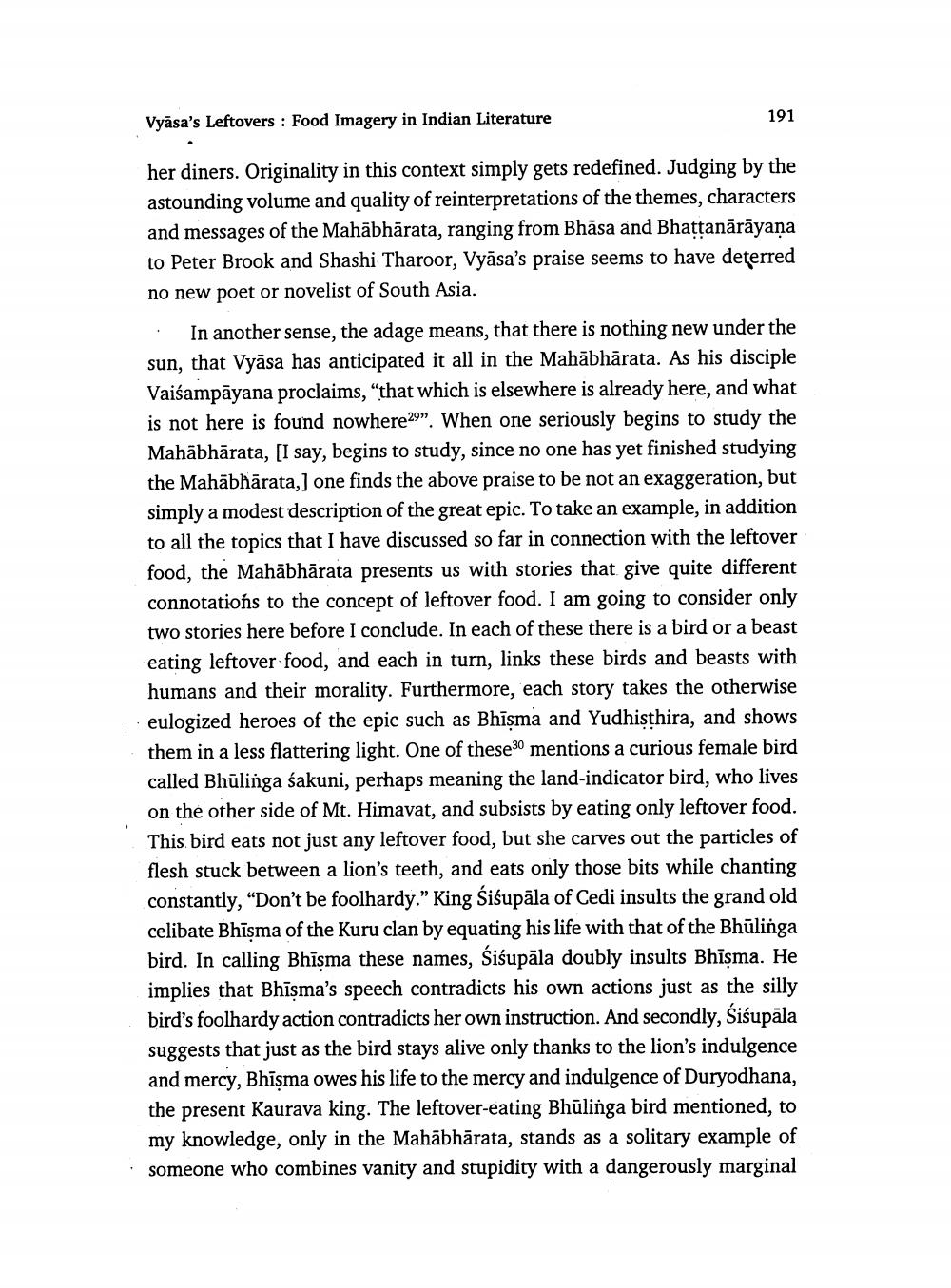________________
Vyāsa's Leftovers : Food Imagery in Indian Literature
191
her diners. Originality in this context simply gets redefined. Judging by the astounding volume and quality of reinterpretations of the themes, characters and messages of the Mahābhārata, ranging from Bhāsa and Bhattanārāyana to Peter Brook and Shashi Tharoor, Vyāsa's praise seems to have deterred no new poet or novelist of South Asia. • In another sense, the adage means, that there is nothing new under the sun, that Vyāsa has anticipated it all in the Mahābhārata. As his disciple Vaišampāyana proclaims, "that which is elsewhere is already here, and what is not here is found nowhere29". When one seriously begins to study the Mahābhārata, [I say, begins to study, since no one has yet finished studying the Mahābhārata,] one finds the above praise to be not an exaggeration, but simply a modest description of the great epic. To take an example, in addition to all the topics that I have discussed so far in connection with the leftover food, the Mahābhārata presents us with stories that give quite different connotations to the concept of leftover food. I am going to consider only two stories here before I conclude. In each of these there is a bird or a beast eating leftover food, and each in turn, links these birds and beasts with humans and their morality. Furthermore, each story takes the otherwise eulogized heroes of the epic such as Bhisma and Yudhisthira, and shows them in a less flattering light. One of these 30 mentions a curious female bird called Bhūlinga sakuni, perhaps meaning the land-indicator bird, who lives on the other side of Mt. Himavat, and subsists by eating only leftover food. This bird eats not just any leftover food, but she carves out the particles of flesh stuck between a lion's teeth, and eats only those bits while chanting constantly, “Don't be foolhardy.” King Siśupāla of Cedi insults the grand old celibate Bhīşma of the Kuru clan by equating his life with that of the Bhūlinga bird. In calling Bhīşma these names, śiśupāla doubly insults Bhīşma. He implies that Bhīşma's speech contradicts his own actions just as the silly bird's foolhardy action contradicts her own instruction. And secondly, Siśupāla suggests that just as the bird stays alive only thanks to the lion's indulgence and mercy, Bhīşma owes his life to the mercy and indulgence of Duryodhana, the present Kaurava king. The leftover-eating Bhūlinga bird mentioned, to my knowledge, only in the Mahābhārata, stands as a solitary example of someone who combines vanity and stupidity with a dangerously marginal




